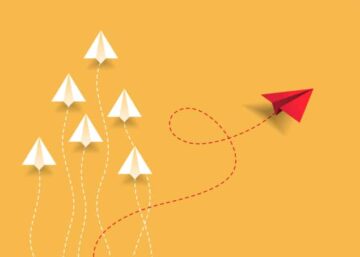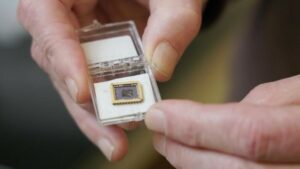Caitlin Duffy argues that it is important for PhD students to develop interests outside the lab and not just solely focus on their research
I was recently sitting at my desk, surrounded by coffee-stained empty mugs and a pile of half-read papers, when I glanced at the clock. It was 9.30 p.m. on a Saturday night. I had spent most of the week marking exams, while the week before that I had been frantically trying to hit a proposal deadline. I knew that the week coming, meanwhile, would mostly be swallowed up with peer review.
My to-do list was growing, with every item that I knocked off it being replaced by at least two others, with no end to my tasks in sight. To make matters worse, as I mindlessly swiped through social-media updates as my kettle boiled for another caffeine hit, I was met with a deluge of posts showing family members and friends enjoying themselves. I, on the other hand, am working over 60 hours a week in a job that pays for only 40.
For PhD students there is often no alternative to the onslaught of demands. Earlier this year, I spent a week at a user facility in Tallahassee, US, where every minute of experimental time was precious. When I returned home to Nijmegen, still suffering with jetlag, I then had to run a seven-day morning shift at the lab. The week afterwards was spent holed up at a week-long school in Les Houches, France.
On top of all that, I still had teaching and supervision responsibilities, articles to write, seminars to present and deadlines to meet. I barely had any control over my life, and by the time it was over I couldn’t even fathom going to the lab for several weeks on end. The bottom line is that in a field where work pressure is high and racking up the most hours is a sort of unspoken masochistic competition, the pure joy of physics can easily be lost.
Jumping between unrelated tasks involves expending a wealth of mental energy – and doing this successively over an extended period requires even more. This is particularly the case when you get little feeling of satisfaction, and any sense of achievement is quickly over-ridden by the next looming deadline. Even when you should be celebrating a new paper in a high-impact-factor journal with cake or a glass of fizz, your joy can be overshadowed by several disapproving referee reports for your next publication that need to be addressed.
Breaking the cycle
With regimented days of “wake, wash, work”, scheduling time for hobbies and for other people in your life is vital if we are to survive the devilish cycle of work. Even if it’s one hour built into the day, consider it a priority. Movement and socializing are key to a healthy body and mind – and escaping the environment responsible for your stress is vital. It’s a point that is all too easily forgotten for PhD students who think that their every waking hour should be spent in the lab.
I personally value sports. During those months of travelling and experiments, I sought out the nearest gym at each of my destinations and forgot about the hundreds of data files that awaited my return. I ended up running in the Florida sunrise, sheltering from snowstorms in a Parisian weight room, and taking a quick pit-stop at the local sports centre three minutes from my lab while my samples cooled.
The pursuit of success in academia is an ultra-marathon, not a marathon – and certainly not a sprint
Throughout my PhD, I have recognized the role that sport has in keeping me grounded and providing a hit of success and dopamine, even on the worst days. The camaraderie and cheerleading from people outside the lab and office is refreshing. While not everyone likes to do sports, other recreational activities could be joining a knitting or hiking group – try anything to get your body and mind away from work.
Managing the top-heavy game of academic Jenga isn’t restricted to PhD students, of course. Senior academics must also manage and lead groups as well as foster new and existing collaborations. It’s a gamble to favour one task over another and it can feel like a sign of weakness to pass on the responsibility for one aspect of the job. On the other hand, hoarding these tasks to prove one’s capabilities can also be a sign of weakness and a recipe for burnout – not to mention demoralizingly negative teaching reviews.
The pursuit of success in academia is an ultra-marathon, not a marathon – and certainly not a sprint. It’s vital to know this when starting a PhD – and during the course itself – because the finish line can be far away and the journey is often relentless. Planning is critical – not only of the work itself but also life outside of it. Neglecting yourself and others is like riding a bike with deflated tyres and a rusty chain: you’ll get to your destination, but you risk damaging yourself and others in doing so.
So, when you next find yourself sitting at your desk at 9.30 p.m. on a Saturday, take a breath and remind yourself that you are in it for the long haul. But by making space in your priority list for other things outside work, the journey will become a lot less arduous.













